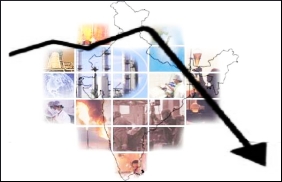|

|
New govt no different in tackling economic crisis: Expert
|
|

|
|
| Top Stories |
 |
|
|
|
SME Times News Bureau | 30 Jun, 2014
The new NDA government has given no indication it is better equipped than its UPA predecessor in tackling the myriad crises affecting India's economy, according to a group of policy analysts who discussed here the challenges before the dispensation ahead of the union budget on July 10.
"The belief system that characterised UPA 1 and 2 is also the same as the NDA's and that is quite inappropriate for tackling the multiple crises of the Indian economy", said Deepak Nayyar, emeritus professor of economics at New Delhi's Jawaharlal Nehru University.
The answers to the crises, characterised by slowing growth, persistent inflation and the current account deficit, do not lie in reducing the fiscal deficit and raising interest rates like was done by the previous government, Nayyar said at a roundtable on challenges before the NDA organised Saturday by a group of NGO think-tanks at the India International Centre.
Pointing out that there is nothing in macro-economic theory that says the fiscal deficit is not sustainable provided government borrowing is used for investment, Nayyar, a former president of the Indian Economic Association, said : "That raising interest rates will contract inflation is false both in theory and practice. It's time to rethink macro-economic policies by redefining policy objectives or reconsidering policy issues."
Saying the government should be concerned not just with price stability but also with the stability of output and employment, Nayyar described the massive slowdown in manufacturing due to "neo-liberal orthodoxy in policy" as "the beginnings of de-industrialisation in India once again".
"The mantra of liberalisation and integration with the world economy has led us to the path of de- industrialisation", he contended.
The share of manufacturing in India's GDP has come down by 3.5 percentage points, while investment has declined between 5 to 7 percent, Nayyar said.
"Public investment needs to rise in infrastructure and agriculture, while in the monetary policy, there is the crying need to reduce interest rates to increase investments", Nayyar said.
In fact, trade policies by liberalising regimes have so crippled the capacity of domestic companies and affected India's export competitiveness that participants quasi-unanimously called for scrapping free trade agreements (FTAs) that are working out unfavourably for the country.
"The government talks of national interest, so it can easily say it wants to review old FTAs," Nayyar said.
Pointing out how manufacturing currently contributed to only 10 percent of India's total exports, and half of which are accounted for by low-technology products, Biswajit Dhar, an expert on WTO issues, said an obvious reason for the dramatic downturn in exporting capacity is the complete delink in India between the trade liberalisation agenda and domestic reform.
"The middle class do not have investment avenues, which is why gold imports have grown so much. I cannot see a way out of the payments crisis unless we do something dramatic in manufacturing", Dhar said.
Former foreign secretary Muchkund Dubey counselled against wholesale scrapping of FTAs in the interests of regional and global cooperation, but advised caution in proceeding with those with the developed world, like the European Union, who are trying to negotiate stiff terms.
|
|
|
| |
|
|
|
|
|
|
|
ashfaque mujawar | Wed Jul 9 17:20:07 2014
excellent brief described

Development of Manufacturing
Dr Mrs Sushma Joiya Pandit | Wed Jul 2 14:51:40 2014
We need thorough thinking in between investment and manufacturing. A new Government has taken the chair to rule the country. We know that Ministry of MSME can do wonders, if and only if, it is given a chance. The planners of India are divided with the result the socio-economic development of masses is also divided into many departments. We have one target but have many guns.Too many cooks spoil the kitchen. Similarly too many guns spoil the economy of the country. With the result paper tigers win the war of development by giving fictitious data. If the work of social development through entrepreneurship is assigned to Ministry of MSME we will definitely be saving huge money of the Government. But who listens ?
is the un-answered question.I am sure we can do wonders if we hit the target only with one gun of Ministry of MSME.PPP can easily work to invest in infrastructure for doing something dramatic by which share of manufacturing could be raised from 3.5 percent points to 7 percent points and investment can also be raised from 6%points to 10 percent points.

|
|
|
|
|
|
|
| |
| Customs Exchange Rates |
| Currency |
Import |
Export |
US Dollar
|
66.20
|
64.50 |
UK Pound
|
87.50
|
84.65 |
Euro
|
78.25
|
75.65 |
| Japanese
Yen |
58.85 |
56.85 |
| As on 13 Aug, 2022 |
|
|
| Daily Poll |
 |
 |
| PM Modi's recent US visit to redefine India-US bilateral relations |
|
|
|
|
|
| Commented Stories |
 |
|
|
|
|
|
| |
|